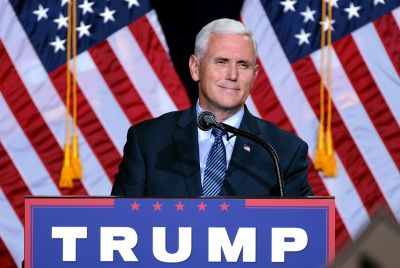U.S. trade act seen as mixed blessing for Africa
Nora Bannerman checks the pristine white uniforms made for American pharmacist Walgreens in her factory in the humid heart of the Ghanaian capital Accra.
Her Sleek Garments company exports shirts, pants and uniforms under the African Growth and Opportunity Act (AGOA), a 2000 U.S. law that allows nearly 40 African countries to export some goods free of duties and quotas into the United States.
AGOA has exposed us to the American buyer, said Bannerman, as fans whirred overhead and sewing machines clicked and buzzed.
But we are still struggling to compete with Chinese prices, she added, referring to tough competition for African textile producers from surging Chinese exports.
U.S. Secretary of State Condoleezza Rice and senior U.S. trade officials will attend a two-day forum starting Wednesday in Accra, to look at ways to improve and expand the initiative.
U.S. officials say AGOA, which has been partly extended to 2015, is helping African states climb out of poverty by offering trade, not handouts -- a key demand of anti-poverty activists.
We believe AGOA has significantly increased Africa's opportunity to send a whole range of products to the United States they had never sent before. We know that because non-oil exports have indeed doubled, U.S. trade representative for Africa, Florizelle Liser, told Reuters.
Still, non-oil exports represent a mere fraction of Africa-U.S. trade.
Last year, AGOA imports from Africa to the United States climbed to $44.2 billion from $38.1 billion in 2005.
But oil products, which generate fewer jobs than other manufacturing activities, accounted for more than 90 percent of this total and among the biggest beneficiaries were oil producers like Nigeria, Angola and Gabon.
In 2006, non-oil products exported under AGOA amounted to $3.2 billion, and Washington wants to increase this.
We are dead set on expanding non-oil AGOA trade, Liser said. Canned fruits and vegetables, horticulture, cut flowers, processed minerals and metals, nuts and oils were all exports from Africa which the United States sought to expand under AGOA.
SUBSIDIES DEBATE
Critics of AGOA argue that U.S government subsidies to American farmers keep African growers stuck in poverty, outweighing any real benefits the trade initiative might offer.
They say this is especially true in the cotton sector, where West African producers complain U.S. subsidies cost them hundreds of millions of dollars a year in lost sales.
Liser said African cotton growers also needed to look at their own efficiency.
People want it to be all about the subsidies, she said.
But she said high-yield cotton producers like China, Brazil and Kazakhstan used better seeds, fertilized more often than African farmers and relied on irrigation rather than rain water.
I tell the Africans ... that if subsidies were magically to disappear, do you really believe that you would be well-placed and ready to benefit from that new system in place, that subsidy-free cotton trading environment? Liser said.
We have to be honest about it and say that they need to do a lot on their end, she added.
African textile exporters trying to gain a foothold in the U.S. market also face intense Chinese competition.
Competition with China is ferocious. ... Most buyers ... compare prices, quality of government support, telecoms, infrastructure to China, said Vanessa Adams of the West Africa Trade Hub, which tries to help companies compete under AGOA.
The biggest problem for many African exporters is arranging bank finance, said Adams. On top of that, they also have to deal with government bureaucracy and often decrepit infrastructure.
Bannerman's factory employs 300 machinists, up from 50 when she started in 2002. One day she hopes to employ more than 700, but although orders are coming in, she says she has yet to make a profit.
We are infants in the industry, it would be over optimistic to be expecting to be making profits now, she said.
She wants AGOA to be extended beyond 2015, allowing African producers time to catch up with China and foreign investors time to set up textile mills in Africa.
© Copyright Thomson Reuters 2024. All rights reserved.





















